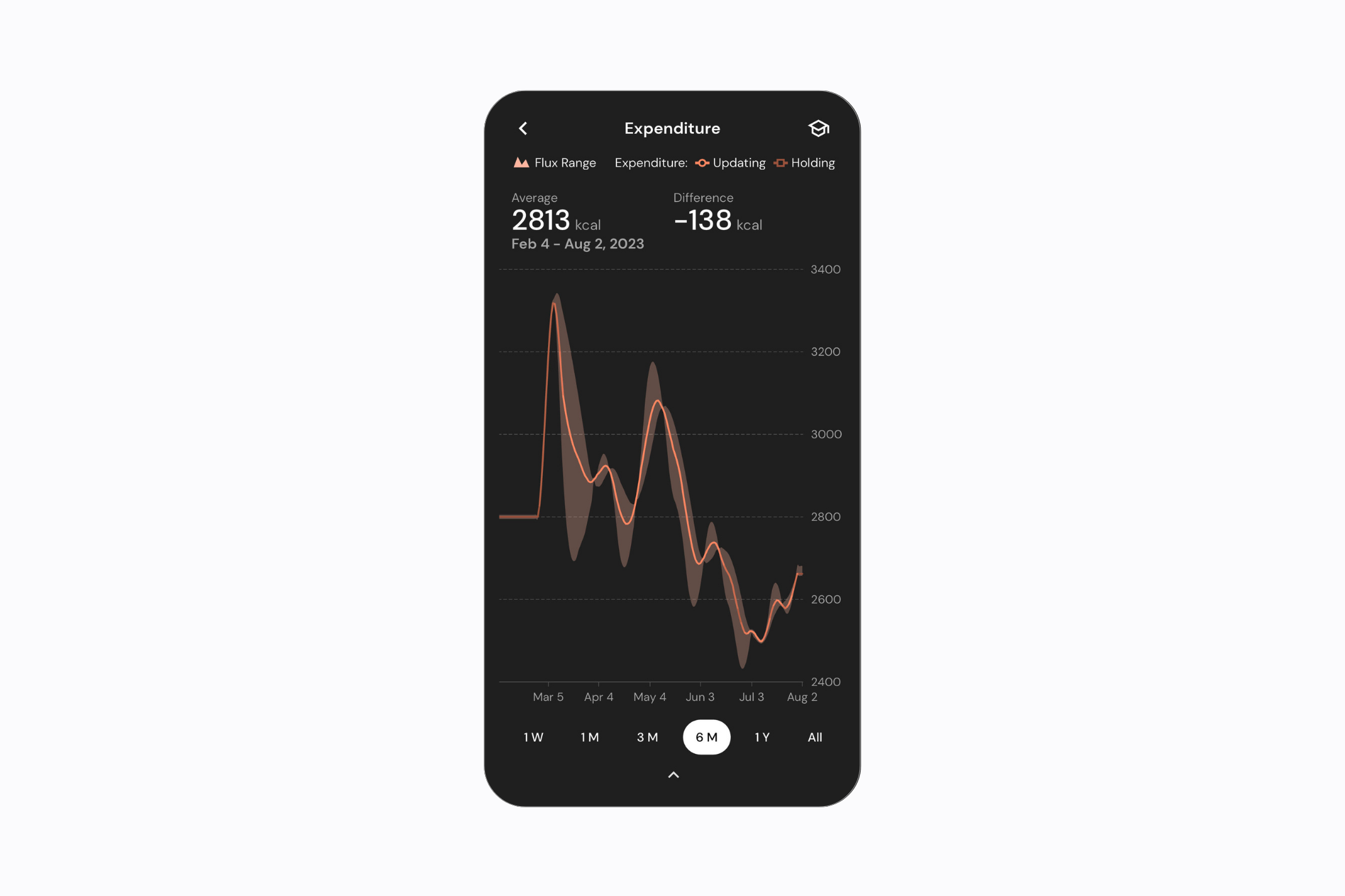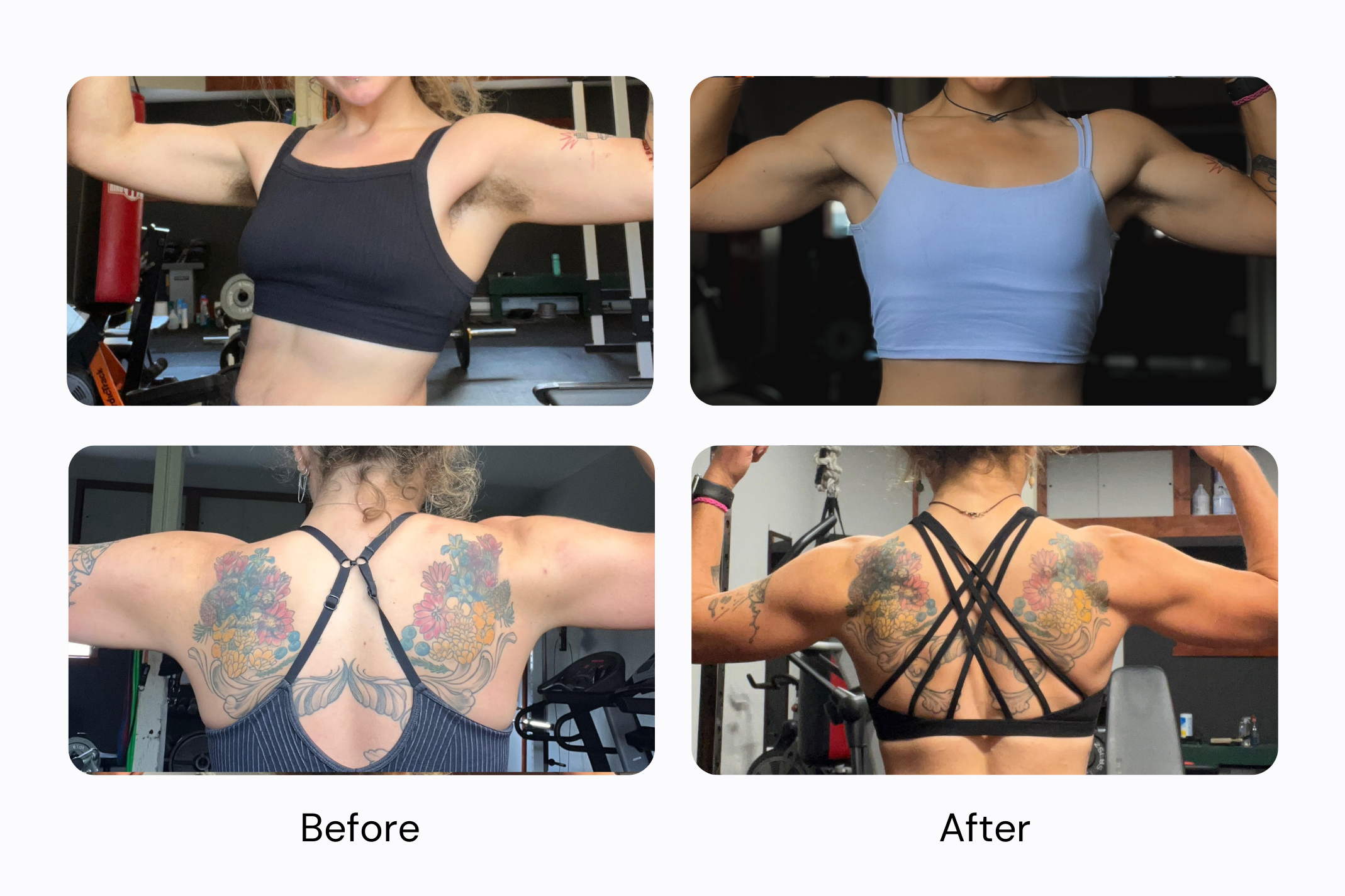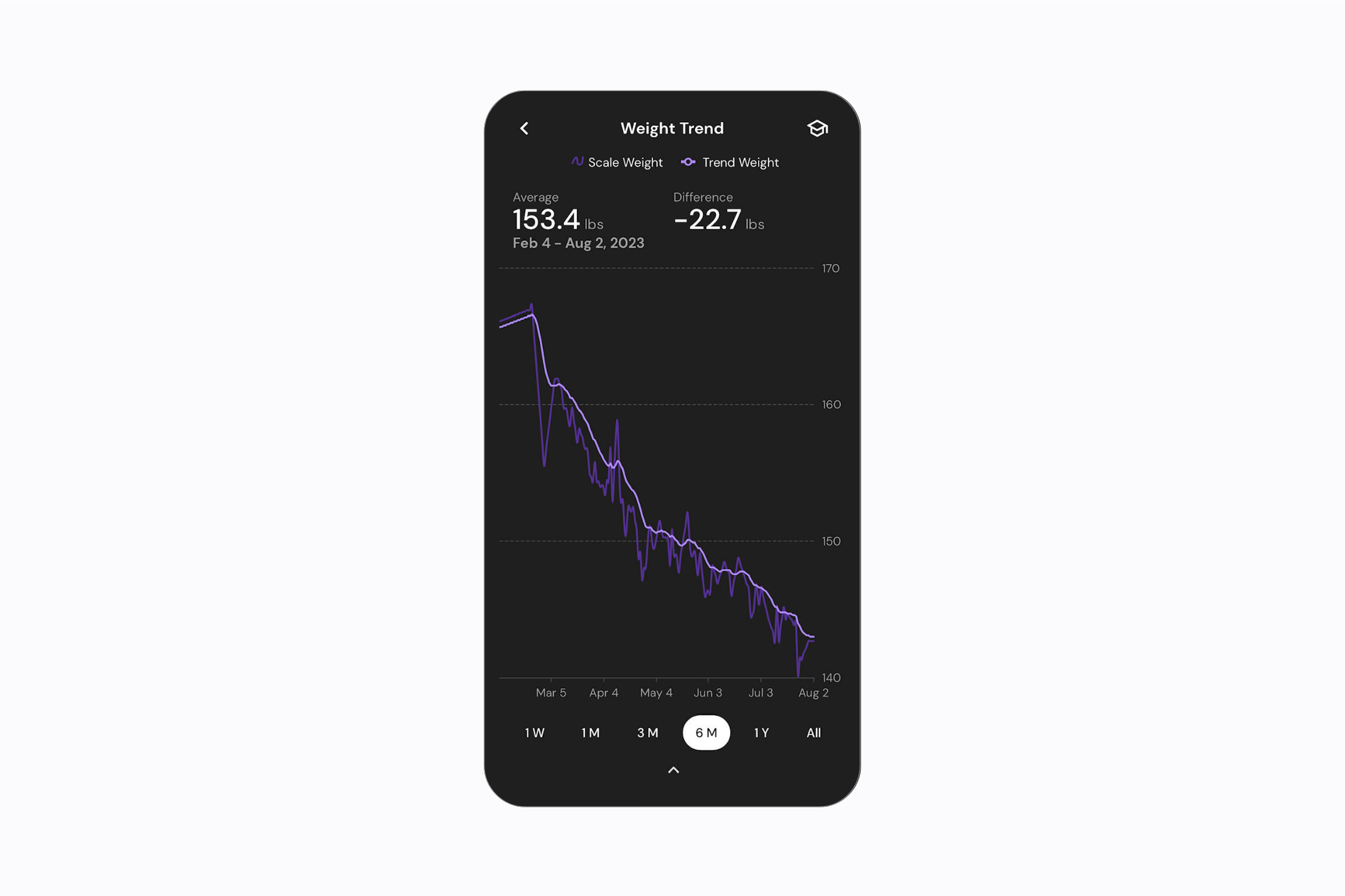Alex Barone used MacroFactor to lose 25 pounds and fuel her physically demanding job and lifestyle, all while gaining strength on her squat, bench, and deadlift.
“This has been my most successful and psychologically sustainable attempt at weight loss yet,” she said.
Alex is 30 years old and lives in Montana, building and maintaining hiking trails for the US Forest Service. She’s also an avid hiker, cyclist, and lifter. Her job requires her to live in a van or tent a lot of the time, but she was able to successfully achieve her fat-loss goal and stay on track with the help of MacroFactor.
“These lifestyle factors prevented me from attempting to diet previously. While it does make for additional friction throughout the process, I was able to stay on track entirely on the road or in the woods,” she said.

Throughout her life, Alex struggled with her nutrition and weight.
“I grew up with obesity and began binge eating in childhood, which led to further eating disorder diagnoses throughout my teens and early 20s with many attempts at ‘healthy’ weight-loss efforts,” she said.
“After recovering from anorexia in my early 20s, I spent eight years struggling with binge eating and strived to maintain my weight and develop a better relationship with food.”

A year prior to downloading MacroFactor, Alex started lifting, and she lost fat and gained muscle by eating intuitively, prioritizing her mental health, and focusing on satiety.
“I began lifting and successfully re-comped over six months, while ensuring I ate a lot of protein but otherwise eating out often and generally enjoying food without compulsion for the first time,” she said. “Over the winter, I bulked while continuing to lift.”
When she decided she wanted to cut fat after her bulk, she downloaded MacroFactor.
“I felt ready to track my food for the first time in years and the app made taking that on straightforward with the adherence-neutral interface and custom macros,” Alex said.
Her goal was to lose fat at a sustainable pace and continue learning about nutrition.
“I was already well-educated and experienced with meal prep, general calories in food, hitting a protein goal, fueling for different sports and activities, and being newly in tune with my hunger cues,” she said. “I needed a tracker that added further value to my knowledge base.”
She knew that her energy expenditure and macro program were going to look different from most people’s due to her manual labor job and active hobbies. MacroFactor’s dynamic energy expenditure algorithm “was an obvious choice to reduce the amount of work I’d have to do on my own to determine the right numbers,” Alex said.

Alex shared a few details about how she set up her diet in MacroFactor.
“I am a highly active individual and began my current weight loss eating 2,600 calories a day,” she said.
She used a coached program and primarily focused on hitting her calorie and protein goals.
“I often eat around 200 grams of protein and fill the rest with what I enjoy (mostly carbs). I do like to ensure 60 or more grams of fiber per day as well,” she said.
She also used MacroFactor’s recipe functionality often – weighing larger batches of food and dividing them into portions for the week, instead of weighing everything daily.

Throughout the diet, Alex’s main priority was on performance. She wanted to feel strong and robust.
Her schedule of lifting five days per week, working 10-hour manual labor days hiking with weight, and bike race training on weekends quickly made her realize the benefit of MacroFactor’s calorie shifting features and weight trend analytics.
“I was able to eat more or less based on activities, while still being able to see that I was objectively eating in a deficit,” she said. “I have struggled to manage this aspect of nutrition before, inundated with hunger after a 60-mile day, trying to stick to my daily deficit instead of looking at the bigger picture.”
Alex said MacroFactor has also helped her take diet breaks and maintenance days throughout the process.
“All in all, I use MacroFactor to reduce food preoccupation and enjoy my life during a dieting phase while still having several solid markers of where my weight and nutrition stands.”

Alex said her biggest win has been developing a more neutral relationship with food.
“While tracking macros and dieting isn’t always recommended to people who are in eating disorder recovery, I met many pre-requisites to make it particularly successful for me,” she said.
“With MacroFactor, I was able to see the diet outside of an aesthetic goal or a scale weight. Entering accurate data simply provided me with additional accurate data and I was less emotionally reactive to the number on the scale, my appearance, and food as a result. The data aspect also contributed to a better relationship with rest and exercise. I could fully trust the process without having to ‘earn’ either of those things.”
“This 6-month period of using MacroFactor is the longest period of time that I can remember not binge eating. I have completely eradicated emotional compulsion from my eating behaviors for the first time in my life.”

Alex recently ended her cut goal and transitioned to a maintenance goal.
“I’ve developed great insight into my nutritional needs throughout my diet, alongside the intuition needed to know when it’s time to shift into maintenance mode and restore homeostasis, which is currently my priority,” she said.
For now, Alex is still tracking her food and weight with MacroFactor daily, but she’s moving toward only needing to do so intermittently.
Through logging consistently, gaining a better understanding of her expenditure, and learning what foods are most satiating for her, she’s confident that she’s developing the skills to maintain her weight with relative ease – without needing to track her food forever.
“I plan to be active for the rest of my life. I plan to maintain a healthy weight for the rest of my life. And each day, I work toward that overarching mission,” Alex said. “MacroFactor embodies the iterative process with a truly evidence-based approach that expands, evolves, and improves with new insights and demands over time.”

After decades of struggling with nutrition and weight, Alex has learned a lot along the way, and has come out on the other side with tenacity and a newfound sense of possibility.
“My success in dieting and in the gym this past year and a half has been the most emotional journey I have ever been on,” Alex said. “I have had to grieve the loss of a former self in such a profound and real way while readily embracing this person I’ve dreamed of becoming.”
She said this “re-birth” isn’t due to her physique, but a result of proving to herself that she can accomplish what she sets out to do. She feels eager to rise up to new challenges, and confident that she can overcome adversity.
“I am so incredibly proud of the woman I’ve become and the grit it took to overcome all the odds I have,” she said. “I am truly in love with the process and the day to day. “
Importantly, Alex noted that her focus on behavior change and mental health for nearly a decade – without focusing on dieting or changing her body – was an essential part of her healing process.
“While I’m proud of the physique I’ve developed since I began lifting and eating with intention, it was only possible after all the internal work I put in.”

To conclude our interview, we asked Alex if she had any advice for other MacroFactor users who have similar goals and histories.
She said that, for her, falling in love with the process is what made the hard work possible.
“I spent the year prior to tracking lifting unprogrammed with progressive overload and eating enough protein – that’s all,” she said. “I just liked the gym and learned how to eat for gains. It was simple enough because I looked forward to it.”
“My advice to anyone who wants to change their mind and body by getting stronger is to figure out what’s going to keep you coming back day after day. Build on that foundation, enjoy your workouts, and enjoy your meals.”
If you’d like to connect with Alex, you can find her on Instagram.
Try MacroFactor for yourself with a 7-day free trial
Confidently control your nutrition with MacroFactor, a science-backed diet coach and macro tracker app that empowers you with the tools you need to reach your goals without rigidity.
You can try it free for 7 days on the App Store or Google Play, or learn more here.
Do you have a MacroFactor success story?
We love to learn about, celebrate, and share MacroFactor users’ success. If you’re interested in your story being featured as a MacroFactor case study, you can learn more and submit your story here.





